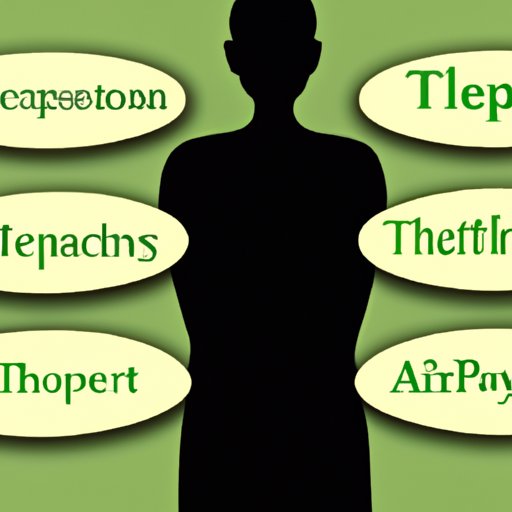Introduction
Mental health affects every aspect of your life from work to relationships. Seeking help is an act of courage that signifies you’re ready to tackle life’s challenges in the healthiest way possible. However, finding the right therapist can be a frustrating process. That is why we have created this comprehensive guide to help you find the perfect therapist for your needs. Whether you’re navigating therapy for the first time or you’re looking to switch to a new counselor, this article provides practical strategies to help you find a therapist that works best for you.
Tips for Researching Qualified Therapists
The first step to finding a suitable therapist is to do research. Here are a few tips to help you begin the process:
Online directories and search engines
There are various online tools that can help you find a therapist. Start by searching online therapist directories where you can filter by location, insurance, type of therapy and more. PsychologyToday website has a search function to help you locate therapists. Other popular directories include GoodTherapy, Healthgrades and Theravive.
Inquiring with insurance providers
Check your insurance policy to find out what benefits are available for mental health and therapy. Give your insurance provider a call and ask for the list of in-network therapists. These therapists have negotiated fees with your insurance provider, which means they will be less expensive for you.
Asking for recommendations from friends and family
Asking for recommendations from people you know and trust can be another useful way to find qualified therapists. You may be surprised to discover that someone you know is seeing a therapist.
Checking qualifications and licenses
Make sure to verify the therapist’s qualifications before settling on one. Look for board-certified therapists that have the appropriate qualifications and licenses to practice. Many therapists will list their certifications on their websites, directories or in their office settings.
Preparing for the First Therapy Appointment
Therapy provides a space where you can ask personal questions and vocalize problems. Here is how to prepare for the initial session:
What to expect
Therapy is unique to each individual. However, most therapy sessions last between 45 and 60 minutes. Expect to be challenged and guided so you can arrive at a solution that will work best for your situation.
What to bring
On your initial appointment, bring a list of issues and concerns to discuss with your therapist. This can help the therapist get to know you better, and tailor the session to your needs. Additionally, bring your insurance verified therapy details if covered by insurance.
Questions to ask to determine if the therapist is a good fit
Your first appointment is the best time to determine if the therapist is a good fit or not. Here are a few questions you can ask to help find out:
– What specific techniques or approaches do you apply to treat mental health conditions?
– Can you explain how we can work on treating my specific problem?
– What are your expectations and goals for our therapy sessions?
– What are the costs involved?
– What types of insurance do you accept?
Identifying the Type of Therapy Needed
There are diverse therapy types available, and each is likely focused on a specific need. Here are some of the most common therapy types:
Cognitive-behavioral therapy
Cognitive-behavioral therapy encourages patients to become aware of the connections between their thoughts, feelings, and behaviors. CBT uses this knowledge to change negative thoughts and actions and replace them with positivity.
Talk therapy
Talk therapy involves face-to-face sessions where the therapist listens to the client and provides insights, observations and feedback to aid in a better understanding of clients’ challenges and promote healing.
Art therapy
This therapy involves using abstract and symbolic artwork ie. drawing, painting or sculptures as an emotional outlet. The artwork can serve as an entry point into discussion and self-reflection.
Other types of therapy
There are other types of therapy available, including group therapy, family therapy, and couples therapy, that can help clients overcome different mental health issues.

Choosing a Therapist According to Personal Values and Beliefs
It’s essential to find a therapist that shares your values and beliefs. Here are strategies for finding one:
Discuss the importance of choosing a therapist with the same values and beliefs
Working with a therapist that shares your values and beliefs is essential in creating a comfortable and secure space to talk about mental health issues. It’s much easier to express your emotions when you’re confident your therapist won’t pass judgment.
Strategies for finding such therapists
Here are a few ways to find a therapist that share your values and beliefs:
– Attend church or spiritual gatherings and ask for recommendations.
– Search online for therapists with the same beliefs and values that you possess.
– Talk to individuals who are on the same journey as you are.
Cost and Insurance in Therapy Selection
Therapy costs aren’t cheap, but it’s crucial to get the help you need. Here are some factors to consider:
Explain the costs associated with therapy sessions
The cost of therapy sessions varies, depending on the therapist’s credentials, geographic location, training, and other factors. Sessions range from $50 to $250 in the United States.
Options for sliding scale fees
Some therapists offer sliding scale fees based on income. This means that the client only pays what they can afford.
Insurance reimbursement
Most insurance plans cover therapy sessions, but double-check what is included in your policy.
Online therapy resources that may be more affordable
Online therapy is more affordable than traditional face-to-face therapy. Apps like BetterHelp and Talkspace are designed for those looking for therapy online. These apps are more affordable, as most do not require additional costs to see a therapist.
Overcoming Common Challenges in Finding a Therapist
Many people struggle with the decision to seek therapy. Here are some common challenges that one may face:
Stigma
There’s still significant stigma associated with seeking out therapy. People fear being judged or assumed to be unstable. It’s essential to remember that a mental health diagnosis does not define you as an individual.
Lack of information
Lack of knowledge about how and where to start on the journey hinders those who need therapy. However, with this guide, you have taken the first step.
Fear of judgment
Many people believe that they can’t tell their therapist specific issues because they fear judgment. Remember, your therapy sessions are safe spaces where your therapist is there to help and guide you. Approaching the session with an open mind is essential.
Teletherapy Options
With advancements in technology, teletherapy has become a practical option that is gaining popularity. Here’s what you need to know:
What is teletherapy?
Teletherapy, also known as virtual therapy, is therapy offered through teletechnology such as video calls, telephone calls, messages or chat features. It’s an incredible option if you have mobility issues or are located in an area without a therapist available.
Advantages and disadvantages of virtual visits
Advantages of teletherapy include flexibility, anonymity, and geographic accessibility. The downside is that it can be impersonal, and internet connectivity can disrupt the session.
How to choose the best platform or service for this type of therapy
Platforms such as Doxy.me, Skype and ZoomApps offer teletherapy options. Thoroughly research the platform to check for features such as confidentiality, availability, and other conveniences before settling on one.
Conclusion
Finding the right therapist takes patience, time, and determination. It’s essential to find a therapist that aligns with your goals, and methods of treatment. The approach you choose can impact your ability to communicate and the success rates you achieve. Regardless of your challenges, we hope this guide has given you insights and practical techniques to approach your therapy sessions confidentially. Seeking the help of a qualified therapist can improve your mental health, relationships, and job satisfaction; so take action and see a therapist today.
